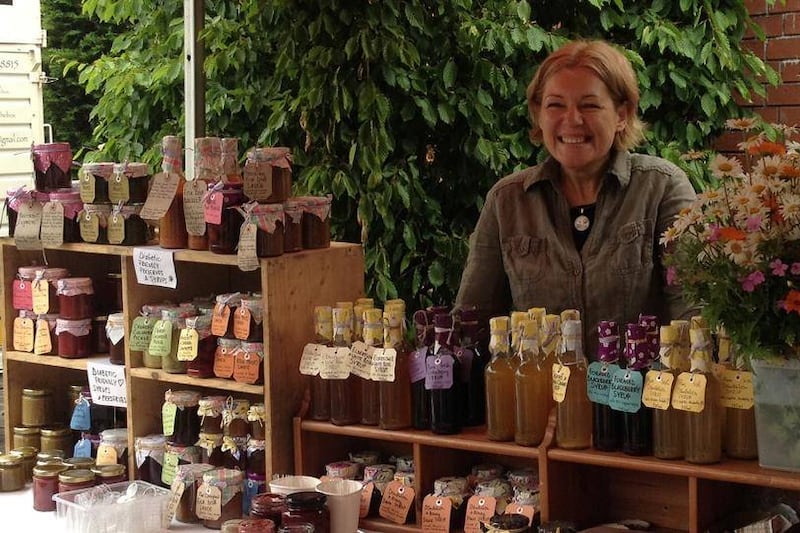WITH people generally taking more interest in what we're putting into our bodies and where our food comes from, more of us are buying organic food than ever before. According to a 2018 report by The Soil Association (the UK's organic certification body), the market grew by 6 per cent last year and now accounts for around 1.5 per cent of the total UK food and drink market.
The biggest increase has been online – home delivery grew by 9.5 per cent last year – understandable if you, like me this week, have ever trudged around supermarkets in search of that elusive 'organic' symbol.
Why are people buying organically?
The modern revival of organic farming took off in the 1940s as a backlash to the industry's reliance on pesticides and chemicals, but apparently it's millennials driving the recent popularity. The Soil Association's report says 54 per cent of 18-25-year-olds would be willing to pay more for organic food.
Organic farming uses fewer pesticides, while genetically-modifed (GM) crops and ingredients are banned, and it's regulated. Anything sold as 'organic' in the EU must comply with strict legal standards, and farms and businesses are inspected annually.
Organic UK, which is trying to help make organic an everyday choice for more people, says this way of farming is better for the soil too, protects and encourages more wildlife, and ensures produce is full of flavour.
When it comes to meat and fish, if it's organic it's always free-range, and standards stipulate that animals must have a certain amount of space and fresh air.
Is it easy to live organically for a week?
Disclaimer: I already buy organic eggs because the yolks are brighter and better quality – but everything organic for a whole week is a leap.
Abel & Cole – who specialise in organic home delivery boxes – loaded me up with a huge selection of fresh produce, including an organic rack of lamb, turmeric and chilli chorizo, wild samphire and rainbow chard.
I was also looking forward to trying organic wine (said to contain less sulphates). Note though that Abel & Cole only do one delivery a week to particular areas, so you have to forward-plan exactly what you'll need.
With a fully stocked fridge, things started well. My pan-fried salmon, roasted sweet potato and mixed greens dinner felt extra virtuous, the fish was plump, more succulent and yes, I could totally tell the difference in taste.
My lunchtime salads became 100 per cent homemade and mornings began with organic smoothies or really good quality rye loaf and much better butter than my normal brand.
Sunday's lamb, roast potatoes and root veg was a triumph – everyone agreed the meat was tastier than the non-organic one we cooked alongside it (for volume rather than comparison, but it served that purpose too).
With careful planning and all the ingredients to hand it's easy, but it did test my organisational skills. A one week-only delivery doesn't account for random cravings.
But aside from one crisp packet-sized slip up when I was hungry and ill-prepared, I ate (and drank) organically for just over a week.
Did I notice the difference?
The biggest eye-opener was the difference in taste of meat and fish. If you can afford it, it seems to make sense to eat meat produced in line with higher standards of animal welfare, for environmental, ethical and yumminess reasons. And now that I've read what's allegedly added to non-organic milk (antibiotics and hormones), I'm a convert there too.
There have been conflicting studies about whether or not eating organic is healthier. In 2009 the Food Standards Agency concluded there was no significant difference in vitamins and minerals. In 2016, the British Journal of Nutrition found "clear differences between organic and conventional milk and meat, especially in terms of fatty acid composition, and the concentrations of certain essential minerals and antioxidants".
Fran McElwaine, director of the UK Health Coaches Association, said I probably wouldn't notice any changes from just a week of eating this way: "The cellular changes made by the toxins in non-organic food are subtle and incremental, likewise the benefits of avoiding them."
But McElwaine does believe chemicals used in industrialised farming methods "have serious and compounding effects on our wellbeing."
Eating organic-only is more expensive. My total shop cost £189, including some household products and store cupboard essentials. For many people, like me, switching long-term isn't financially possible, but every food choice we make does help determine the kind of standards we want food supply chains to have.
:: For more information visit the Organic UK website feedyourhappy.co.uk








